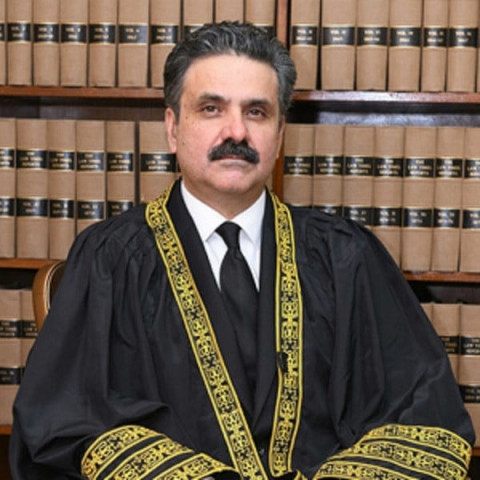Islamabad:
The Supreme Court has ordered suspension in the procedure in all cases currently pending before the alternative dispute settlement committees (ADRC), which operate under the administrative control of the FBR to manage the questions related to the tax, in particular those involving state entities.
The ordinance came from a division bench led by chief judge Yahya Afridi, who published a two -page directive.
He noted that during the procedures, he was brought to the attention of the Court that the FBR, in consultation with the ministry of Law and justice, was revising the mechanism of appointment of members to the ADRC.
The legal member of the FBR submitted before the bench that the income organization remains open to constructive suggestions concerning the ADRC procedure as obliged by law.
By taking note, the court observed that it would be appropriate for the FBR to examine the question in detail first.
Consequently, the bench ordered the FBR to consult Shahid Jamil, a petitioner lawyer (ZTBL), the respondent’s lawyer (FBR), Amicus Curiae Sultan Mazhar Sher Khan, Pakistan Attorney General and Secretary, Ministry of Law and Justice.
The ordinance also ordered that the FBR must “duly consider the opinions and contributions” of these stakeholders before finalizing the proposed framework for the appointment of the members of the ADRC.
“A report in this regard will be submitted to this court before the next hearing date. In the meantime, the procedure in all cases currently pending before the ADRC will remain suspended until 24.07.2025,” said the court.
Shahid Jamil, lawyer for ZTBL, argued that transparency should be ensured in the appointment of ADRC members.
However, legal experts remain divided on the current state of ADRCs and their role in the settlement of disputes.
A lawyer representing a state company (SOE) argued that the Adrc mechanism has proven to be “destructive” for public enterprises. “They are crushed by the tax and have no appeal against the ADRC,” he said, alleging that billions of tax rupees have been forcibly recovered in June without the legally necessary opinions, simply to achieve income targets.
“All public enterprises are destroyed,” he added. Another lawyer argued that the ADRC should operate independently and without the influence of FBR to be credible.
On the other hand, Hafiz Ehsaan Ahmad, who represented the FBR in many cases, defended the institution. He explained that the FBR was legally authorized to constitute ADR committees for the payment of tax disputes and to avoid prolonged disputes.
However, he recognized that the ADR system in Pakistan was struggling because of several structural defects, in particular the absence of qualified and independent arbitrators, a lack of transparency in the ADRC composition, inadequate digital and institutional infrastructures and, above all, the limited discoveries of the nature of the link and the performance of ADR instructions, in particular when they involve discoveries of the fact.




